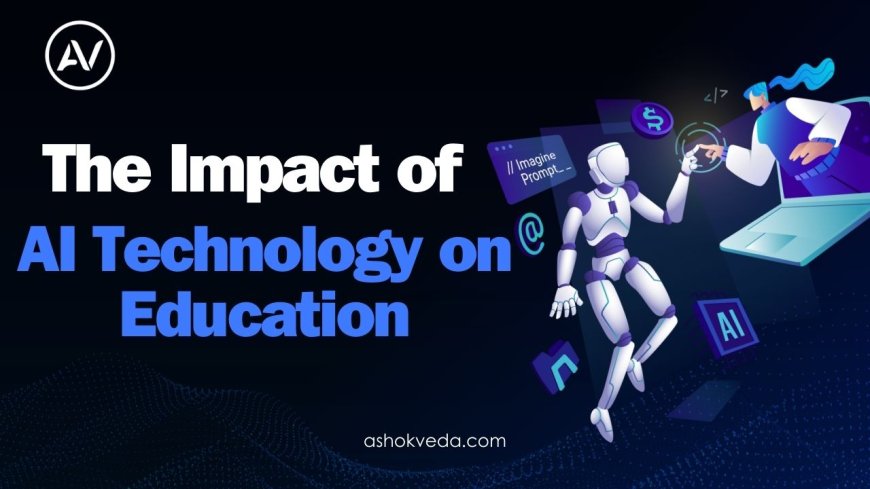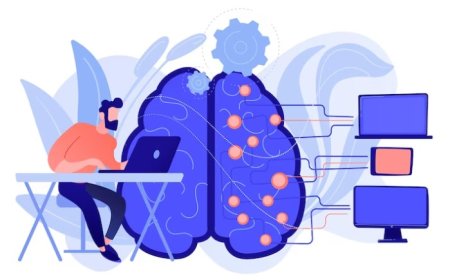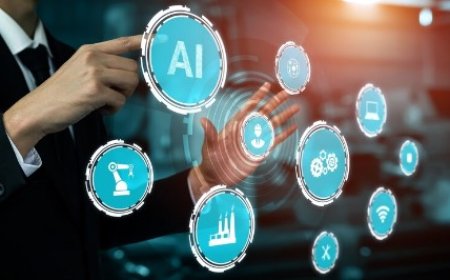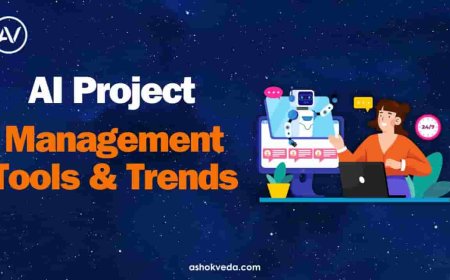The Impact of AI Technology on Education
Discover how AI technology is transforming education by enhancing personalized learning, improving administrative tasks, and supporting teachers.

AI is affecting every part of our lives, including education. Understanding how AI technology impacts education is important to everyone who is a teacher, a student, or simply interested in the future of learning. we'll look at how AI technology is changing classrooms, improving learning experiences, and addressing some problems. we study AI technology!
The Role of AI Technology in Education
AI technology is increasingly transforming the way education can be provided and used. AI is making outstanding developments in the educational industry, from individualized learning experiences to the automating of office tasks are some major areas where AI technology is making a difference.
1. Personalized Learning: AI technology enables the creation of customized learning experiences tailored to individual students' needs. AI can recommend specific resources and activities by analyzing data such as learning pace, strengths, and weaknesses, helping students learn more effectively. This use of Machine Learning allows for adaptive learning systems that respond to the individual progress of each student, making education more tailored and effective.
2. Automated Grading and Assessment: Teachers frequently spend substantial amounts of time grading assignments and assessments. AI technology can automate these chores, providing fast feedback and allowing teachers to focus on interactive teaching and student engagement. Machine learning algorithms can assess and grade students' responses accurately, assuring consistency and fairness.
3. Virtual tutors and assistants: AI-powered virtual tutors can provide students with extra help outside of class. These tutors may answer questions, explain concepts, and walk students through challenging topics, improving their understanding and recall. This is particularly important for disciplines like math and science, where students frequently require more assistance.
4. Administrative Efficiency: AI technology helps to streamline administrative procedures such as registration and class scheduling. This effectiveness helps educational institutions to run more smoothly and use resources where they are most needed. AI can manage regular tasks, reducing the administrative pressure on workers and allowing them to focus on more strategic objectives.
Benefits of AI Technology in Education
The integration of AI technology into education offers numerous benefits
-
Improved Student Engagement: AI can create interactive and immersive learning experiences that keep students engaged. Tools such as virtual reality (VR) and gamified learning platforms make lessons more interesting and memorable. These technologies use AI to adapt the content and difficulty level based on student responses, ensuring an engaging learning experience.
-
Accessibility and Inclusion: AI technology can help students with problems by providing speech-to-text, text-to-speech, and real-time translation capabilities. This ensures that every kid has an equal opportunity to study and engage. Students with hearing problems can use AI-powered transcription services to follow along with lectures in real time.
-
Data-Driven Insights: Artificial intelligence may assess large amounts of educational data and identify trends and patterns. Educators can apply these findings to improve teaching methods, the design of curriculum, and student support services. Understanding how different pupils learn allows teachers to adapt their approaches to improve success.
-
Teacher Support: By automating recurrent chores, AI technology allows teachers to focus on what they do best teaching and mentoring. Providing this support can help instructors decrease stress and increase job satisfaction. AI solutions can assist in class planning, grading, and even offering individualized feedback to students.
-
Machine Learning: This subset of AI focuses on developing algorithms that allow computers to learn from and make predictions based on data. In education, machine learning algorithms can personalize learning experiences and improve the accuracy of automated grading systems.
-
Deep Learning: A more complex form of machine learning, deep learning involves neural networks that can analyze large datasets to recognize patterns. This technology is used in developing intelligent tutoring systems and enhancing virtual reality educational tools.
-
Educational Technology: Often abbreviated as EdTech, this term includes all technological tools and applications used to support teaching and learning. AI is a component of the EdTech landscape, offering innovative solutions for various educational challenges.
-
Data Analytics: The process of examining large datasets to uncover hidden patterns, correlations, and other insights. In education, data analytics can inform decision-making, improve student outcomes, and optimize resource allocation.
Challenges and Consideration
While AI technology offers many benefits, it also presents challenges that need to be addressed
Privacy and Security: The application of AI in education involves collecting and analyzing student data. Protecting the privacy and security of this data is essential for protecting students' information from abuse or agreement. Educational institutions must adopt strong data protection policies and educate students and staff on data privacy.
Bias and Fairness: AI algorithms may knowingly replicate biases found in training data. It is important to create and implement AI systems that are fair and unbiased, providing equal chances for all students. Regular audits and updates for AI systems can help mitigate these biases.
Cost and Accessibility: Implementing AI technology can be expensive, specifically for organizations with limited resources. Providing that AI tools are available to all schools, regardless of financial status, is important for reasonable education. Policymakers and educational leaders should develop methods to make AI technology inexpensive and accessible.
Teacher Training: Effective use of AI technology demands teachers to be properly trained. Professional development programs should be designed to assist teachers in effortlessly integrating AI tools into their instructional practices. Continuous support and training must be provided to keep up with technological changes.
Future Trends in AI Technology and Education
Adaptive Learning Systems: These systems will become more advanced, allowing for more individualized learning experiences. They will respond in real time to kids' needs, providing specific help and assets. Adaptive learning platforms use data analytics and machine learning to continuously enhance the learning process.
AI-Powered Collaborative Learning: AI will make collaborative learning simpler by connecting students and educators all around the world. This global connection will improve learning opportunities and expose people to a variety of perspectives. AI can help develop virtual classrooms where students can collaborate on projects and share ideas regardless of geographical boundaries.
Integration with Developing Technologies: AI technology will be integrated into other developing technologies such as augmented reality (AR) and virtual reality (VR) to provide realistic and interactive learning experiences. These technologies can imitate actual situations, giving hands-on learning experiences that are both entertaining and informative.
Lifelong Learning: AI will support lifelong learning by providing adaptable and individualized learning paths. This technique will assist individuals in acquiring new skills and knowledge throughout their lives. AI-powered learning platforms can offer personalized learning modules based on a person's career goals and interests.
Artificial intelligence is changing education in unprecedented ways. By personalizing learning experiences, increasing teacher effectiveness, offering quick feedback, and promoting collaboration, AI technology is opening the way for a smarter and more effective educational future. As we start on this exciting path, it must be done to acknowledge the potential of AI technology while also addressing the related difficulties and moral issues. Together, we can make education more accessible, interesting, and successful for all.





































